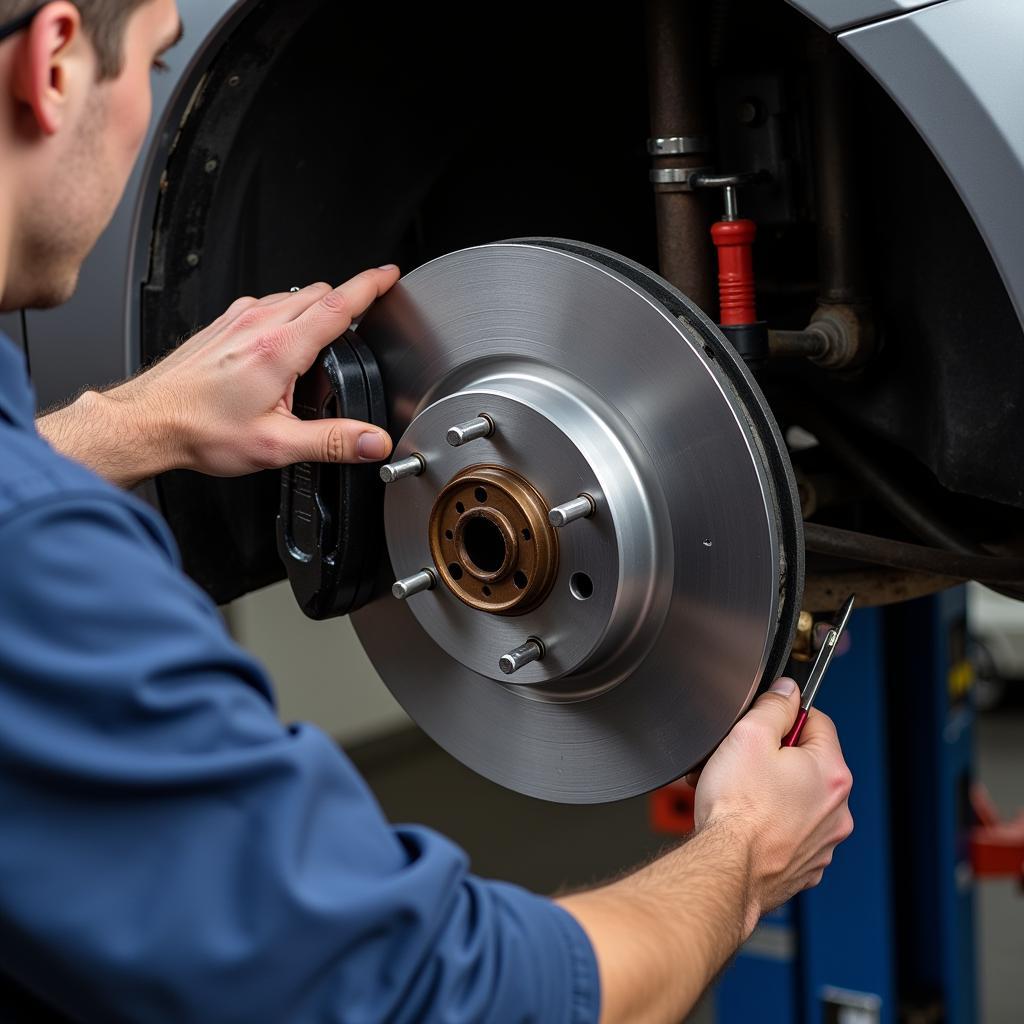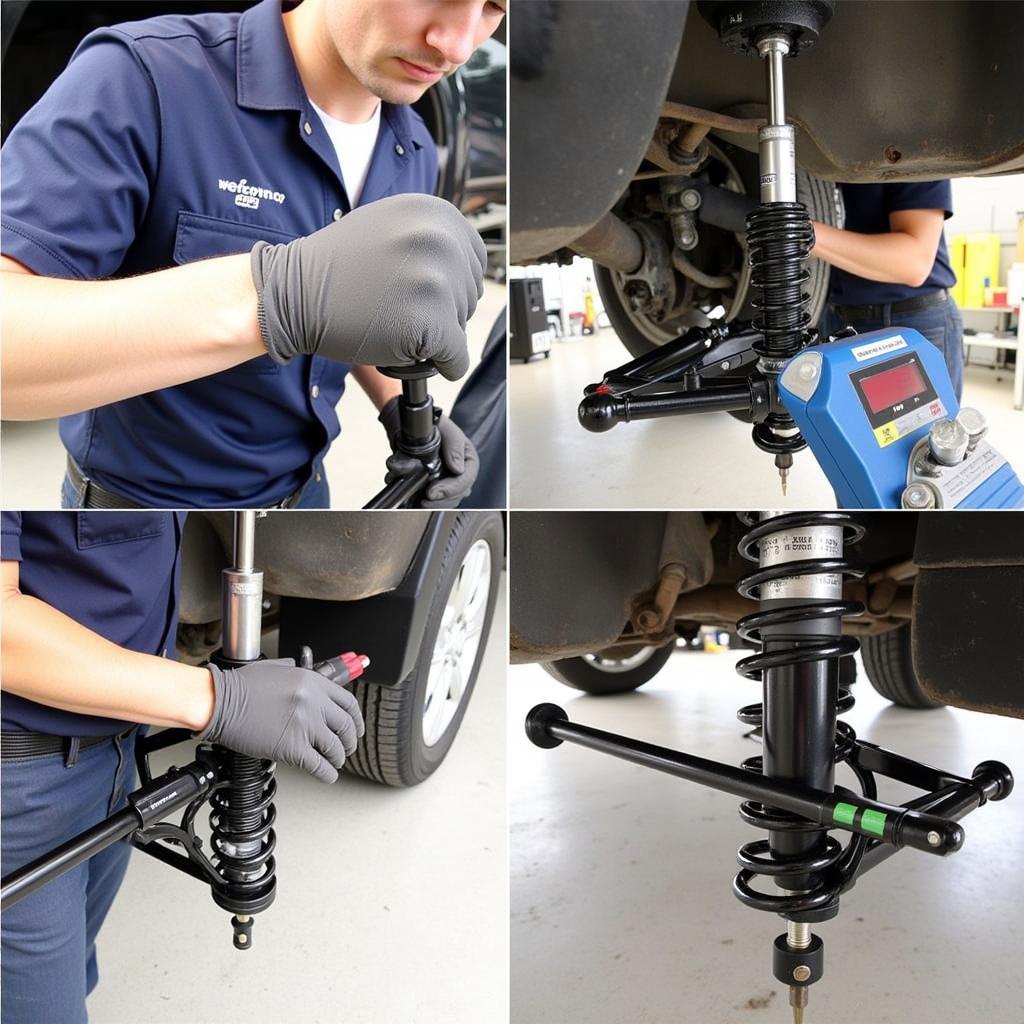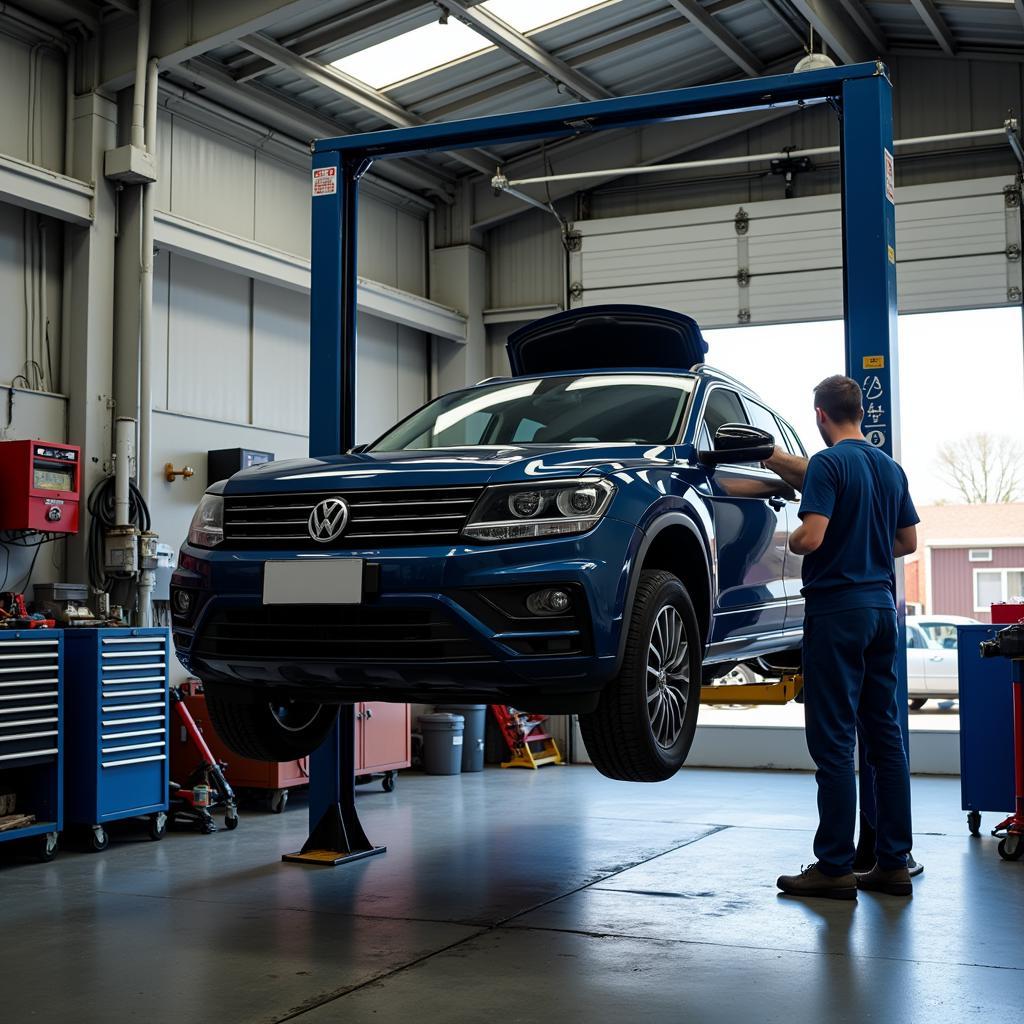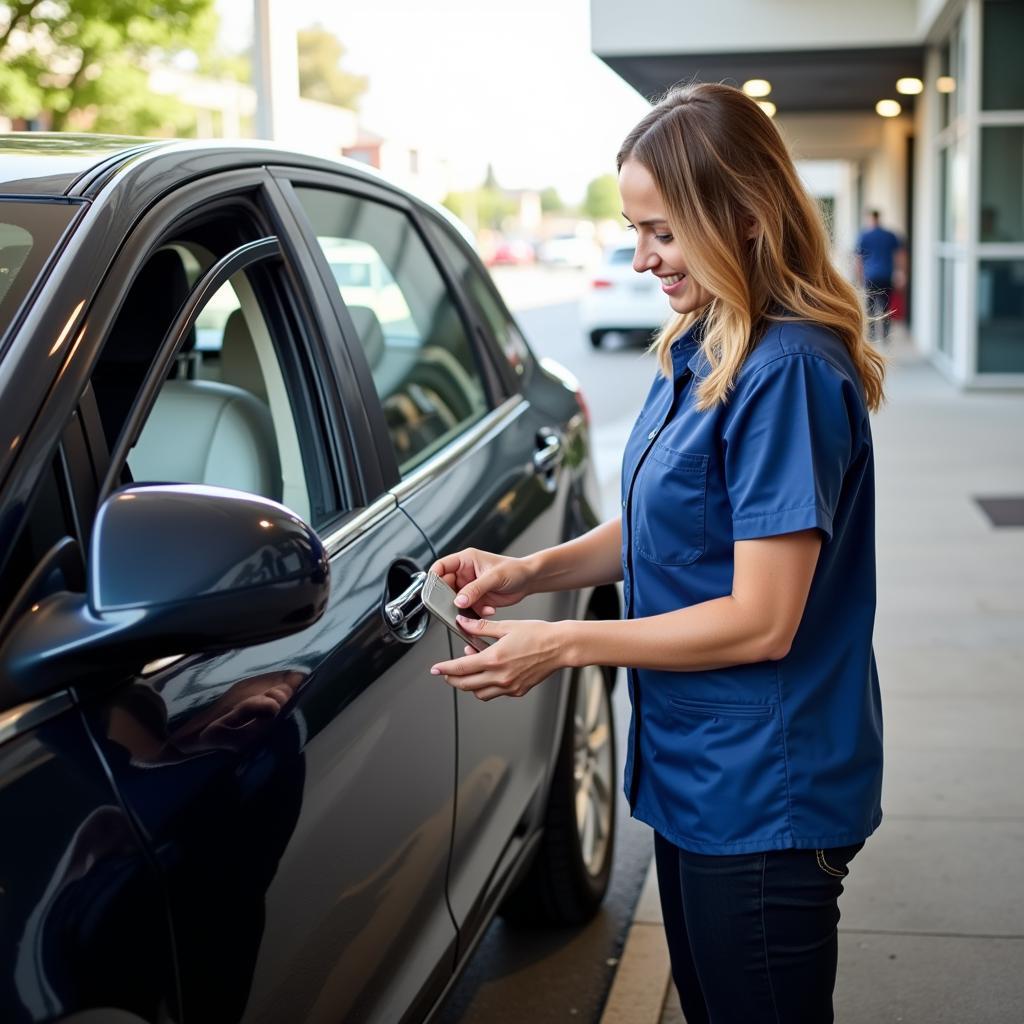What Do I Need to Do a Whole Car Service?
A complete car service is crucial for maintaining your vehicle’s performance, safety, and longevity. Understanding what’s involved in a full car service can empower you to make informed decisions about your car’s maintenance. This comprehensive guide will outline everything you need to know about conducting a whole car service.
A thorough car service goes beyond a simple oil change and tire rotation. It involves a detailed inspection and maintenance of various components, ensuring your car runs smoothly and safely. Depending on your car’s make, model, and mileage, a full car service may vary. However, certain essential checks and procedures remain consistent. Knowing what these are can help you discuss your car’s needs effectively with a mechanic or prepare to tackle the service yourself. Want to find out more about car services? Check out what things are done in car service.
Essential Components of a Full Car Service
A full car service typically includes several crucial checks and replacements. Understanding these components can help you prepare for your next service and keep your car in top condition.
Fluid Checks and Replacements
One of the most critical aspects of a car service is checking and replacing various fluids. This includes engine oil, coolant, brake fluid, power steering fluid, transmission fluid, and windshield washer fluid. Each fluid plays a vital role in the proper functioning of your car. For instance, engine oil lubricates the engine components, reducing friction and wear. Coolant regulates the engine temperature, preventing overheating.
Filter Replacements
Filters prevent contaminants from entering the engine and other crucial systems. During a full car service, filters such as the oil filter, air filter, and cabin air filter are usually replaced. A clogged air filter can restrict airflow to the engine, impacting fuel efficiency and performance. Similarly, a dirty cabin air filter can reduce air quality inside the cabin.
Brake Inspection
A comprehensive brake inspection is vital for safety. The mechanic will check the brake pads, rotors, calipers, and brake lines for wear and tear. Worn brake pads can reduce braking efficiency and increase stopping distance, posing a safety risk.
 Brake Inspection During Car Service
Brake Inspection During Car Service
Tire Inspection and Rotation
Tires are crucial for handling and safety. During a service, the mechanic will inspect the tires for wear, tread depth, and pressure. They will also rotate the tires to ensure even wear and prolong their lifespan. Properly inflated tires contribute to fuel efficiency and optimal handling.
Steering and Suspension Check
The steering and suspension system ensures a comfortable and controlled ride. The mechanic will inspect the shocks, struts, ball joints, and tie rod ends for any signs of damage or wear. A faulty suspension system can affect handling and ride comfort.
 Mechanic Checking Steering and Suspension Components
Mechanic Checking Steering and Suspension Components
Electrical System Check
The electrical system powers various components, including the lights, wipers, and ignition system. The mechanic will check the battery, alternator, starter, and wiring for any issues. A malfunctioning electrical system can lead to starting problems or other electrical failures.
Exhaust System Check
The exhaust system removes harmful emissions from the engine. The mechanic will inspect the exhaust pipes, muffler, and catalytic converter for leaks or damage. A faulty exhaust system can lead to increased emissions and reduced fuel efficiency.
What to Expect During a Car Service
When you take your car for a service, you can expect the mechanic to follow a systematic process. They will typically start with a visual inspection, followed by more detailed checks and replacements. They may also use diagnostic tools to identify any underlying issues.
“A comprehensive car service is an investment in your car’s health and your safety,” says John Smith, a certified automotive technician with over 20 years of experience. “Regular maintenance can prevent costly repairs down the road.”
 Car Undergoing Full Service at a Garage
Car Undergoing Full Service at a Garage
DIY vs. Professional Car Service
While some car owners prefer to perform basic maintenance tasks themselves, a full car service often requires specialized tools and expertise. If you’re not comfortable working on your car, it’s best to leave it to a qualified mechanic. Considering purchasing a car? Find out about the AAA car buying service. Interested in a service-based job? Check out is child care a service based job.
“Attempting complex repairs without proper training can lead to further damage and higher repair costs,” advises Jane Doe, a senior automotive engineer. “It’s crucial to know your limits and seek professional help when needed.” If you are interested in career development services you can find more resources online. Looking for customer service salaries information? Learn about what are customer service salaries at hoya vision care.
Conclusion
Knowing What Do I Need To Do A Whole Car Service is crucial for maintaining your car’s optimal performance, safety, and longevity. By understanding the essential components of a full car service, you can ensure your vehicle receives the necessary care and attention it deserves. Regular servicing can prevent major issues and save you money in the long run.
FAQ
- How often should I get a full car service? It depends on your car’s make, model, and usage. Refer to your owner’s manual for recommended service intervals.
- What is the difference between a full service and an interim service? A full service is more comprehensive and covers more checks and replacements than an interim service.
- Can I do a full car service myself? While some tasks can be done at home, a full service often requires specialized tools and expertise.
- How much does a full car service cost? The cost varies depending on your car’s make, model, and the service provider.
- What should I look for in a car service provider? Choose a reputable mechanic with experience and certifications.
- How can I prepare my car for a service? Ensure your car is clean and remove any personal belongings.
- What should I do after a car service? Keep your service records and follow any recommendations from the mechanic.
Need further assistance? Contact us via WhatsApp: +1(641)206-8880, Email: [email protected] or visit us at 456 Oak Avenue, Miami, FL 33101, USA. Our customer service team is available 24/7.

